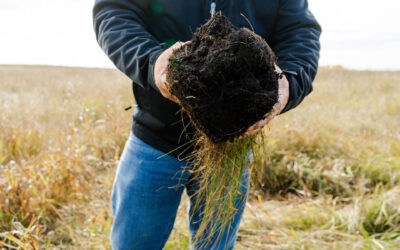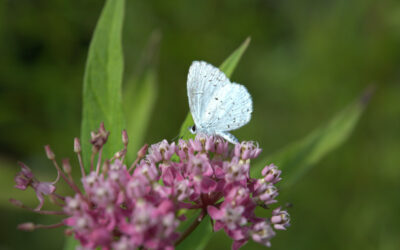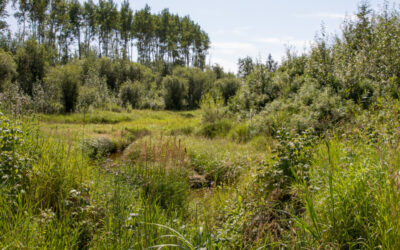ALUS Parkland eco-buffer project produces ecosystem services at the Edmonton Corn Maze.
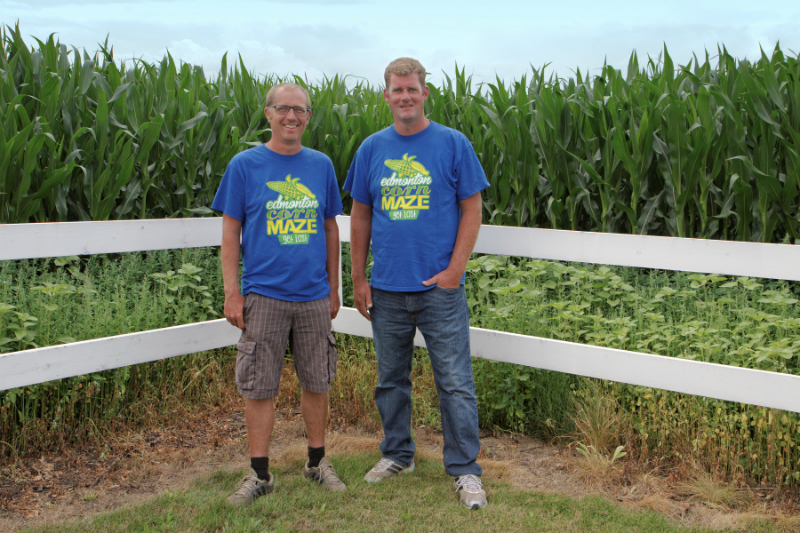
ALUS Parkland participants Jesse Kraay (left) and Dan Horneman (right) are co-owners of the Edmonton Corn Maze in Spruce Grove, Alberta. The ALUS eco-buffer project on site produces a bumper crop of ecosystem services, such as cleaner air, cleaner water and more biodiversity. Photo: Patrick Zen Wan, Advantage Photography
The Edmonton Corn Maze provides visitors with an unforgettable experience each summer, getting maximum entertainment value out of 15 acres of corn. And thanks to the ALUS project on the grounds, it also produces a bumper crop of ecosystem services, such as cleaner air, cleaner water and more biodiversity, in Spruce Grove, Alberta.
We visited the Edmonton Corn Maze in July, 2016, when its co-owners, ALUS Parkland participants Jesse Kraay and Dan Horneman, graciously welcomed more than 130 people to their property to celebrate the official relaunch of ALUS Canada.
Following the press conference, guests toured the Edmonton Corn Maze’s ALUS project, where a community of perennial plants, forbs, trees and shrubs has been established to serve as an “eco-buffer” between the corn maze and nearby Wedgewood Creek.
During the visit, Agroforestry and Woodlot Extension Society (AWES) technician Luke Wonneck and then-ALUS Parkland Project Coordinator Darren Haarsma explained how the project helps to improve water quality downstream, while also producing local habitat for pollinators, birds and beneficial insects.

Guests visited a one-acre ALUS Parkland project and learned how its community of perennial plants, forbs, trees and shrubs serves as an “eco-buffer” between the Edmonton Corn Maze and nearby Wedgewood Creek, helping to improve water quality downstream, while also producing local habitat for pollinators, birds and beneficial insects. Photo: Patrick Zen Wan, Advantage Photography
Specifically, the eco-buffer absorbs nutrients and sediment from the corn plantation to improve water quality in the creek, provides habitat for pollinators and pest-suppressing insects, spiders, and birds, which reduces pest outbreaks in the adjacent cornfield, and serves as a visual- and noise-barrier between the highway and the corn maze. Like all ALUS projects, this eco-buffer turns marginal land into something valuable.
As ALUS Parkland participants, Horneman and Kraay receive technical support and annual payments from ALUS to help them maintain this ALUS project. “With the mix of students, neighbours and folks from the city who visit us, this location provides the perfect opportunity for demonstrating the benefits of an eco-buffer,” said Horneman.
Visiting the Edmonton Corn Maze’s ALUS project served as the kick-off to ALUS Parkland’s 2016 annual farm tour, a sold-out event during which three busloads of guests saw ALUS projects across the County.
For ALUS Canada’s Western Hub Manager, Christine Campbell, who oversees all Alberta’s ALUS communities, the event was profoundly inspirational. “Seeing people at all levels of the program come together like this, from our farmers and ranchers to our municipal leaders, and from our external partners to our funders and supporters—it really demonstrates why ALUS has been so successful in Alberta,” she said.
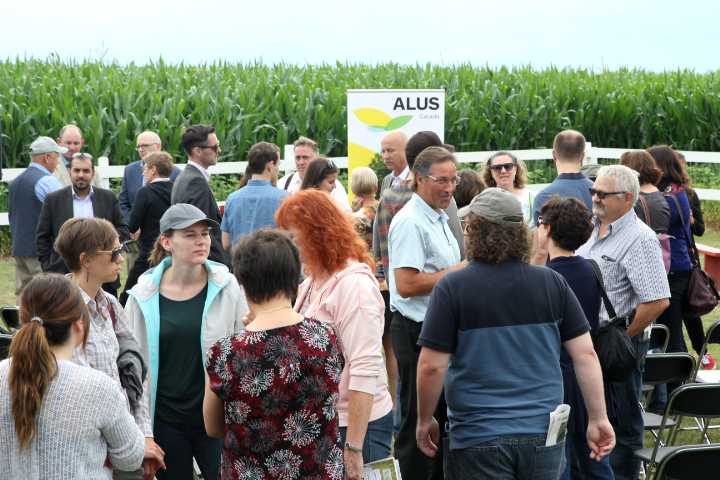
ALUS Parkland participants Jesse Kraay and Dan Horneman welcomed more than 130 people to the Edmonton Corn Maze to see their eco-buffer project and celebrate the official relaunch of ALUS Canada in July 2016. Photo: Patrick Zen Wan, Advantage Photography

